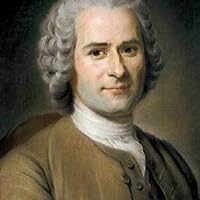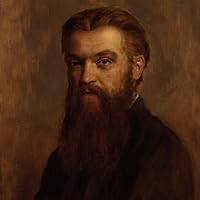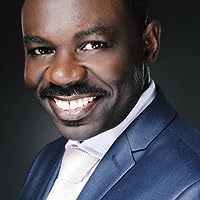Alexandria Quotes
Quotes tagged as "alexandria"
Showing 1-10 of 10

“They say that Caliph Omar, when consulted about what had to be done with the library of Alexandria, answered as follows: 'If the books of this library contain matters opposed to the Koran, they are bad and must be burned. If they contain only the doctrine of the Koran, burn them anyway, for they are superfluous.' Our learned men have cited this reasoning as the height of absurdity. However, suppose Gregory the Great was there instead of Omar and the Gospel instead of the Koran. The library would still have been burned, and that might well have been the finest moment in the life of this illustrious pontiff.”
― Discourse on the Sciences and Arts and Polemics
― Discourse on the Sciences and Arts and Polemics

“Love in my world usually ended up with someone hearing “I smite thee!” as she was cursed to be some lame flower for the rest of her life.”
― Daimon
― Daimon
“There are no known non-biblical references to a historical Jesus by any historian or other writer of the time during and shortly after Jesus's purported advent. As Barbara G. Walker says, 'No literate person of his own time mentioned him in any known writing.' Hellenistic Jewish philosopher Philo Judaeus of Alexandria (20 BCE-50 CE)—alive at the purported time of Jesus, and one of the wealthiest and best connected citizens of the Empire—makes no mention of Christ, Christians or Christianity in his voluminous writings. Nor do any of the dozens of other historians and writers who flourished during the first one to two centuries of the common era.”
― The Origins of Christianity and the Quest for the Historical Jesus Christ
― The Origins of Christianity and the Quest for the Historical Jesus Christ

“Euclid's Elements has been for nearly twenty-two centuries the encouragement and guide of that scientific thought which is one thing with the progress of man from a worse to a better state. The encouragement; for it contained a body of knowledge that was really known and could be relied on, and that moreover was growing in extent and application. For even at the time this book was written—shortly after the foundation of the Alexandrian Museum—Mathematics was no longer the merely ideal science of the Platonic school, but had started on her career of conquest over the whole world of Phenomena. The guide; for the aim of every scientific student of every subject was to bring his knowledge of that subject into a form as perfect as that which geometry had attained. Far up on the great mountain of Truth, which all the sciences hope to scale, the foremost of that sacred sisterhood was seen, beckoning for the rest to follow her.”
― Lectures and Essays by the Late William Kingdon Clifford, F.R.S.
― Lectures and Essays by the Late William Kingdon Clifford, F.R.S.

“Biblia pamoja na historia vinatwambia kuwa mitume kumi na wawili wa Yesu Kristo waliamua kufa kinyama kama mfalme wao alivyokufa, kwa sababu walikataa kukana imani yao juu ya Yesu Kristo.
Mathayo alikufa kwa ajili ya Ukristo nchini Ethiopia kwa jeraha lililotokana na kisu kikali, Marko akavutwa na farasi katika mitaa ya Alexandria nchini Misri mpaka akafa, kwa sababu alikataa kukana jina la Yesu Kristo.
Luka alinyongwa nchini Ugiriki kwa sababu ya kuhubiri Injili ya Yesu Kristo katika nchi ambapo watu hawakumtambua Yesu.
Yohana alichemshwa katika pipa la mafuta ya moto katika kipindi cha mateso makubwa ya Wakristo nchini Roma, lakini kimiujiza akaponea chupuchupu, kabla ya kufungwa katika gereza la kisiwa cha Patmo (Ugiriki) ambapo ndipo alipoandika kitabu cha Ufunuo. Mtume Yohana baadaye aliachiwa huru na kurudi Uturuki, ambapo alimtumikia Bwana kama Askofu wa Edessa. Alikufa kwa uzee, akiwa mtume pekee aliyekufa kwa amani.
Petro alisulubiwa kichwa chini miguu juu katika msalaba wa umbo la X kulingana na desturi za kikanisa za kipindi hicho, kwa sababu aliwaambia maadui zake ya kuwa alijisikia vibaya kufa kama alivyokufa mfalme wake Yesu Kristo.
Yakobo ndugu yake na Yesu (Yakobo Mkubwa), kiongozi wa kanisa mjini Yerusalemu, alirushwa kutoka juu ya mnara wa kusini-mashariki wa hekalu aliloliongoza la Hekalu Takatifu (zaidi ya futi mia moja kwenda chini) na baadaye kupigwa kwa virungu mpaka akafa, alipokataa kukana imani yake juu ya Yesu Kristo.
Yakobo mwana wa Zebedayo (Yakobo Mdogo) alikuwa mvuvi kabla Yesu Kristo hajamwita kuwa mchungaji wa Injili yake. Kama kiongozi wa kanisa hatimaye, Yakobo aliuwawa kwa kukatwa kichwa mjini Yerusalemu. Afisa wa Kirumi aliyemlinda Yakobo alishangaa sana jinsi Yakobo alivyolinda imani yake siku kesi yake iliposomwa. Baadaye afisa huyo alimsogelea Yakobo katika eneo la mauti. Nafsi yake ilipomsuta, alijitoa hatiani mbele ya hakimu kwa kumkubali Yesu Kristo kama kiongozi wa maisha yake; halafu akapiga magoti pembeni kwa Yakobo, ili na yeye akatwe kichwa kama mfuasi wa Yesu Kristo.
Bartholomayo, ambaye pia alijulikana kama Nathanali, alikuwa mmisionari huko Asia. Alimshuhudia Yesu mfalme wa wafalme katika Uturuki ya leo.
Bartholomayo aliteswa kwa sababu ya mahubiri yake huko Armenia, ambako inasemekana aliuwawa kwa kuchapwa bakora mbele ya halaiki ya watu iliyomdhihaki.
Andrea alisulubiwa katika msalaba wa X huko Patras nchini Ugiriki. Baada ya kuchapwa bakora kinyama na walinzi saba, alifungwa mwili mzima kwenye msalaba ili ateseke zaidi. Wafuasi wake waliokuwepo katika eneo la tukio waliripoti ya kuwa, alipokuwa akipelekwa msalabani, Andrea aliusalimia msalaba huo kwa maneno yafuatayo: "Nimekuwa nikitamani sana na nimekuwa nikiitegemea sana saa hii ya furaha. Msalaba uliwekwa wakfu na Mwenyezi Mungu baada ya mwili wa Yesu Kristo kuning’inizwa juu yake." Aliendelea kuwahubiria maadui zake kwa siku mbili zaidi, akiwa msalabani, mpaka akaishiwa na nguvu na kuaga dunia.
Tomaso alichomwa mkuki nchini India katika mojawapo ya safari zake za kimisionari akiwa na lengo la kuanzisha kanisa la Yesu Kristo katika bara la India.
Mathiya alichaguliwa na mitume kuchukua nafasi ya Yuda Iskarioti, baada ya kifo cha Yuda katika dimbwi la damu nchini India. Taarifa kuhusiana na maisha na kifo cha Mathiya zinachanganya na hazijulikani sawasawa. Lakini ipo imani kwamba Mathiya alipigwa mawe na Wayahudi huko Yerusalemu, kisha akauwawa kwa kukatwa kichwa.
Yuda Tadei, ndugu yake na Yesu, aliuwawa kwa mishale alipokataa kukana imani yake juu ya Yesu Kristo.
Mitume walikuwa na imani kubwa kwa sababu walishuhudia ufufuo wa Yesu Kristo, na miujiza mingine. Biblia ni kiwanda cha imani. Tunapaswa kuiamini Biblia kama mitume walivyomwamini Yesu Kristo, kwa sababu Biblia iliandikwa na mitume.”
―
Mathayo alikufa kwa ajili ya Ukristo nchini Ethiopia kwa jeraha lililotokana na kisu kikali, Marko akavutwa na farasi katika mitaa ya Alexandria nchini Misri mpaka akafa, kwa sababu alikataa kukana jina la Yesu Kristo.
Luka alinyongwa nchini Ugiriki kwa sababu ya kuhubiri Injili ya Yesu Kristo katika nchi ambapo watu hawakumtambua Yesu.
Yohana alichemshwa katika pipa la mafuta ya moto katika kipindi cha mateso makubwa ya Wakristo nchini Roma, lakini kimiujiza akaponea chupuchupu, kabla ya kufungwa katika gereza la kisiwa cha Patmo (Ugiriki) ambapo ndipo alipoandika kitabu cha Ufunuo. Mtume Yohana baadaye aliachiwa huru na kurudi Uturuki, ambapo alimtumikia Bwana kama Askofu wa Edessa. Alikufa kwa uzee, akiwa mtume pekee aliyekufa kwa amani.
Petro alisulubiwa kichwa chini miguu juu katika msalaba wa umbo la X kulingana na desturi za kikanisa za kipindi hicho, kwa sababu aliwaambia maadui zake ya kuwa alijisikia vibaya kufa kama alivyokufa mfalme wake Yesu Kristo.
Yakobo ndugu yake na Yesu (Yakobo Mkubwa), kiongozi wa kanisa mjini Yerusalemu, alirushwa kutoka juu ya mnara wa kusini-mashariki wa hekalu aliloliongoza la Hekalu Takatifu (zaidi ya futi mia moja kwenda chini) na baadaye kupigwa kwa virungu mpaka akafa, alipokataa kukana imani yake juu ya Yesu Kristo.
Yakobo mwana wa Zebedayo (Yakobo Mdogo) alikuwa mvuvi kabla Yesu Kristo hajamwita kuwa mchungaji wa Injili yake. Kama kiongozi wa kanisa hatimaye, Yakobo aliuwawa kwa kukatwa kichwa mjini Yerusalemu. Afisa wa Kirumi aliyemlinda Yakobo alishangaa sana jinsi Yakobo alivyolinda imani yake siku kesi yake iliposomwa. Baadaye afisa huyo alimsogelea Yakobo katika eneo la mauti. Nafsi yake ilipomsuta, alijitoa hatiani mbele ya hakimu kwa kumkubali Yesu Kristo kama kiongozi wa maisha yake; halafu akapiga magoti pembeni kwa Yakobo, ili na yeye akatwe kichwa kama mfuasi wa Yesu Kristo.
Bartholomayo, ambaye pia alijulikana kama Nathanali, alikuwa mmisionari huko Asia. Alimshuhudia Yesu mfalme wa wafalme katika Uturuki ya leo.
Bartholomayo aliteswa kwa sababu ya mahubiri yake huko Armenia, ambako inasemekana aliuwawa kwa kuchapwa bakora mbele ya halaiki ya watu iliyomdhihaki.
Andrea alisulubiwa katika msalaba wa X huko Patras nchini Ugiriki. Baada ya kuchapwa bakora kinyama na walinzi saba, alifungwa mwili mzima kwenye msalaba ili ateseke zaidi. Wafuasi wake waliokuwepo katika eneo la tukio waliripoti ya kuwa, alipokuwa akipelekwa msalabani, Andrea aliusalimia msalaba huo kwa maneno yafuatayo: "Nimekuwa nikitamani sana na nimekuwa nikiitegemea sana saa hii ya furaha. Msalaba uliwekwa wakfu na Mwenyezi Mungu baada ya mwili wa Yesu Kristo kuning’inizwa juu yake." Aliendelea kuwahubiria maadui zake kwa siku mbili zaidi, akiwa msalabani, mpaka akaishiwa na nguvu na kuaga dunia.
Tomaso alichomwa mkuki nchini India katika mojawapo ya safari zake za kimisionari akiwa na lengo la kuanzisha kanisa la Yesu Kristo katika bara la India.
Mathiya alichaguliwa na mitume kuchukua nafasi ya Yuda Iskarioti, baada ya kifo cha Yuda katika dimbwi la damu nchini India. Taarifa kuhusiana na maisha na kifo cha Mathiya zinachanganya na hazijulikani sawasawa. Lakini ipo imani kwamba Mathiya alipigwa mawe na Wayahudi huko Yerusalemu, kisha akauwawa kwa kukatwa kichwa.
Yuda Tadei, ndugu yake na Yesu, aliuwawa kwa mishale alipokataa kukana imani yake juu ya Yesu Kristo.
Mitume walikuwa na imani kubwa kwa sababu walishuhudia ufufuo wa Yesu Kristo, na miujiza mingine. Biblia ni kiwanda cha imani. Tunapaswa kuiamini Biblia kama mitume walivyomwamini Yesu Kristo, kwa sababu Biblia iliandikwa na mitume.”
―

“الغريب في الإسكندرية أنها تصبح عروس البحر الأبيض عندما يسكنها أهلها فقط .. ثم تتحول العروس إلى أرملة عندما تمتلئ بالغرباء !”
― أفكار ممنوعة
― أفكار ممنوعة

“In his most thrilling military victory to date, Napoleon had defeated an Ottoman force eighteen thousand men strong at Aboukir. It had been Javert’s first real taste of battle, watching cannon fire blow ships into splinters and hearing the last screams of drowning men. The French army, stinking and spluttering with plague, had emerged victorious but exhausted. They had taken refuge in Alexandria, though it hardly felt safe. Very recently, Napoleon had left with a few of his nearest friends for a voyage into the Delta. Now Javert was just one of the confused mass left reeling in the wake of the chaos.”
― Wolves and Urchins: The Early Life of Inspector Javert
― Wolves and Urchins: The Early Life of Inspector Javert

“The fate of the books and all their vast numbers, is epitomized in the greatest library in the ancient world, a library located not in Italy but in Alexandria, the capital of Egypt and the commercial hub of the Eastern Mediterranean. The city had many tourist attractions, including an impressive theater and red light district. But visitors always took note of something quite exceptional, in the center of the city, at the lavish site known as "the museum" most of the intellectual inherits of Greek, Latin, Babylonian, Egyptian and Jewish cultures ad been assembled at enormous costs and carefully archived for researched. Starting as early as 300BCE, the Ptolemaic Kings who ruled Alexandria had the inspired idea of luring leading scholars, scientists and poets to their city by offering them life appointments at their museum...The recipients of this largess established remarkably high intellectual standards. Euclid developed his geometry in Alexandria, Archimedes discovered Pi and laid the foundation of calculus.”
― The Swerve: How the World Became Modern
― The Swerve: How the World Became Modern
All Quotes
|
My Quotes
|
Add A Quote
Browse By Tag
- Love Quotes 97k
- Life Quotes 75.5k
- Inspirational Quotes 72.5k
- Humor Quotes 43.5k
- Philosophy Quotes 29.5k
- Inspirational Quotes Quotes 27k
- God Quotes 26k
- Truth Quotes 23.5k
- Wisdom Quotes 23.5k
- Romance Quotes 23k
- Poetry Quotes 22k
- Death Quotes 20k
- Happiness Quotes 18.5k
- Life Lessons Quotes 18.5k
- Hope Quotes 18k
- Faith Quotes 18k
- Quotes Quotes 16.5k
- Inspiration Quotes 16.5k
- Spirituality Quotes 15k
- Religion Quotes 15k
- Motivational Quotes 15k
- Writing Quotes 14.5k
- Relationships Quotes 14.5k
- Life Quotes Quotes 14k
- Love Quotes Quotes 13.5k
- Success Quotes 13.5k
- Time Quotes 12.5k
- Motivation Quotes 12k
- Science Quotes 11.5k
- Knowledge Quotes 11k

